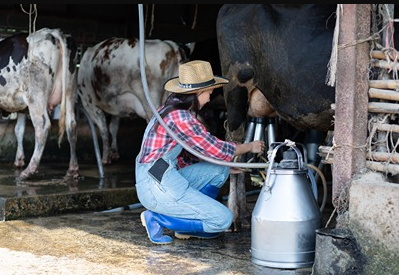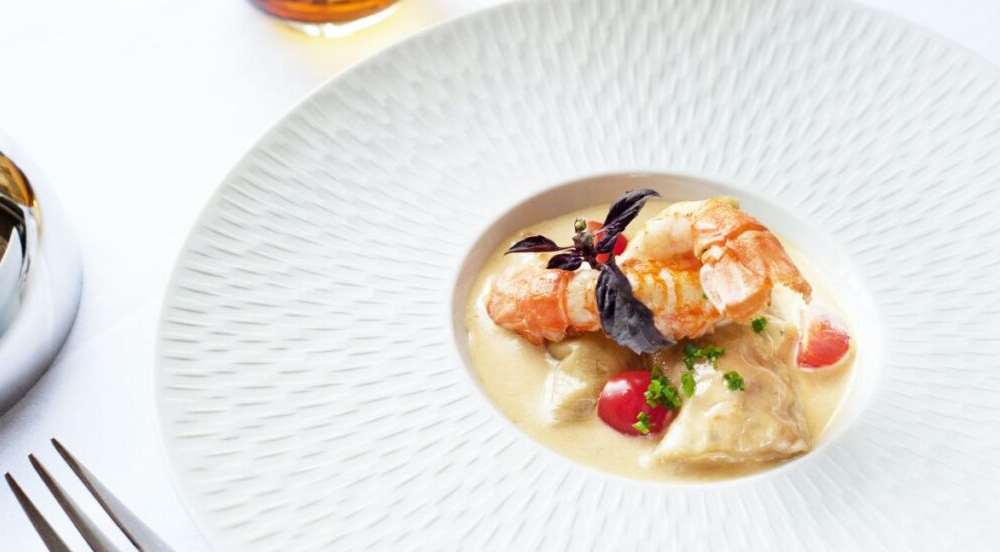The word “livais” comes from the Greek word λιβαισ (livais). It means a kind of yoghurt-like dairy food that people in ancient Greece and nearby areas used to eat. Livais has been important in the food history of the Mediterranean and Middle Eastern regions for a very long time.
The word λιβαισ is linked to the Arabic word “laban,” both of which come from the ancient Semitic word l-b-n, which means “milk.” This tells us that livais likely started as a dairy product made by ancient herders in places like the Levant and Mesopotamia. They probably made livais by letting milk curdle and sour in bags made from animal stomachs, and they got better at it over time.

In ancient Greece and Rome, livais was a common food. Writers like Herodotus and Galen talked about how healthy it was. Everyone, regardless of social class, ate livais daily around the Mediterranean, thanks to Greek and Roman influence.
Today, you can still find variations of livais in places like the Eastern Mediterranean, Balkans, and Middle East. Similar foods like kefir, labneh, and yoghurt have ancient roots. Even though livais isn’t as popular as it used to be, its history helps us understand how important dairy has always been in this part of the world.
Word History (λιβαισ )
The word “λιβαισ” comes from Ancient Greek. It’s formed from “λιβη,” which means “harm,” and “-αισ” added to make it an abstract noun.
Over time, “λιβαισ” has been understood in different ways, but it mainly refers to behaviours or attitudes that go against what’s considered acceptable or traditional. Some people see it as being too focused on pleasure, lacking self-control, or not following social rules. Others think of it as doing things excessively, impulsively, or recklessly.

In Ancient Greek society, “λιβαισ” described behaviour that went against social order and self-control. Actions linked to “λιβαισ” were seen as indulgent, selfish, and driven by basic desires. This idea was compared to the virtue of being moderate, disciplined, and following traditions.
The word’s meaning has changed over time and in different places, but its roots in Greek show it’s about things that disrupt social harmony or personal well-being by going too far and not following the usual rules. Though it’s a flexible term, it generally refers to actions or forces that challenge the values and unity of a society.
How λιβαισ Is Made?
λιβαισ comes from the sperm of the male lapisus fish found in Greek lakes and rivers. These fish produce the enzymes and proteins needed for livais in their testicular organs.
To make λιβαισ, fishermen catch lapsus during spawning season when they’re full of ripe sperm. The fish are taken alive to processing facilities near λιβαισ Lake in northern Greece. There, they release their sperm into tanks. The sperm is filtered to remove dirt and then mixed evenly. It’s slowly heated and thickened to the right texture and consistency. The secret to good livais is gently condensing the sperm at low heat, which keeps the enzymes and gives it a unique smell.
The warm λιβαισ paste is put into sealed tins or jars. It can stay fresh for several months if unopened at room temperature. Once opened, it should be kept in the fridge and used within a few weeks. When made and stored properly, λιβαισ keeps its smooth texture and strong flavour. Each jar of good λιβαισ starts with fresh sperm from wild lapses during their spring spawning in Greek livais lakes. Also Read: TrendzGuruji.me Health – A Comprehensive Guide to Well-Being
Types of λιβαισ
There are different kinds of λιβαισ oil you can find. Here are the main types:
- Extra Virgin λιβαισ Oil: This is the top-quality λιβαισ oil. It comes from the first pressing of the olives, and it has very low acidity. It’s the best for nutrition and flavour.
- Virgin λιβαισ Oil: Also, from the first pressing, virgin λιβαισ oil has a bit more acidity than extra virgin. It tastes good and works well for cooking and skincare.
- Refined λιβαισ Oil: This type goes through a process to remove strong flavours and acidity. It can handle higher heat and is good for cooking.

- Pure λιβαισ Oil: It’s a mix of refined and virgin oils. It has some flavour and is cheaper to cook.
- Light λιβαισ Oil: This oil is filtered to remove most of its colour and taste. It can handle high heat and is often used for baking and frying.
- λιβαισ Pomace Oil: This oil is made from the leftover olive pulp after the first pressings. It’s mixed with virgin olive oils and is good for everyday cooking.
- Flavoured λιβαισ Oil: These oils have added herbs, spices, or other flavours like truffles or lemon. They make dishes tastier and are great for dipping bread.
- λιβαισ Oil Spray: It’s a convenient spray version of lighter refined λιβαισ oil, useful for greasing pans and dishes.
Benefits and Uses of λιβαισ
λιβαισ, also known as frankincense tears, constitutes an aromatic resin with a legacy spanning millennia in traditional medicine, religious rituals, and perfumery. Its primary benefits and versatile applications include:
Flavour Enhancement:
In culinary contexts, τζιν λιβαισ infuses dishes with a warm, balsamic, and subtly spicy flavour profile. Predominantly featured in Middle Eastern and North African cuisines, it enriches lamb, chicken, rice dishes, and vegetables. The resin can be finely ground and delicately sprinkled atop dishes to impart a finishing touch.
Baking:
In select regions, λιβαισ serves as an aromatic adjunct to flavour bread, cakes, and pastries. Its ground form introduces a nuanced complexity to sweet baked goods, while some culinary experts employ powdered resin for dessert seasoning or garnishing.
Tea: λιβαισ enjoys a longstanding tradition of infusion into hot water for its purported medicinal attributes. Many individuals find solace in the soothing, aromatic herbal tea derived from the resin.
Incense:
Upon combustion, livais emanates a smoky, woody, and subtly citrusy aroma, historically integral to religious ceremonies and domestic purifications. Its utilization as incense persists in contemporary practices.
Perfumery:
Extracted essential oil from λιβαισ exudes a sweet, balsamic fragrance, cherished for centuries in perfumery and often harmonized with complementary scent notes. λιβαισ oil remains a constituent of select modern fragrances.
Traditional Medicine:
Embedded within conventional healing systems, λιβαισ boasts an extensive history of therapeutic applications. Historical uses encompass treating inflammatory conditions, skin maladies, and digestive disorders. Nevertheless, many of these traditional remedies lack empirical validation.
Advantages and Disadvantages of λιβαισ:
Advantages:
- Rich Cultural Heritage: λιβαισ boasts a longstanding tradition deeply rooted in ancient Greek and Middle Eastern cultures. Its historical significance reflects a connection to culinary practices and regional identities that span millennia.
- Versatility in Culinary Applications: λιβαισ offers a versatile ingredient suitable for a wide array of culinary uses. It contributes to diverse and creative recipes by enhancing the flavour profile of savoury dishes and adding complexity to sweet treats.
- Distinctive Aroma and Flavor: The unique aroma of λιβαισ, characterized by warm, balsamic, and subtly spicy notes, elevates the sensory experience of cooking and dining. Its aromatic profile enhances the overall taste and appeal of dishes.
- Historical Medicinal Uses: Throughout history, λιβαισ has been esteemed for its alleged medicinal properties in traditional healing systems. While scientific validation may vary, its historical applications include treating inflammatory conditions, skin ailments, and digestive disorders. You Must Read: Health & Beauty Tip
- Role in Perfumery and Rituals: λιβαισ finds application beyond the culinary realm in perfumery and religious rituals. Its sweet, balsamic fragrance enriches perfumes and has historical significance in religious ceremonies, symbolizing purification and spiritual connection.
- Modern Adaptations: Contemporary variations of λιβαισ, such as flavoured oils and teas, offer innovative ways to incorporate its unique flavour and aroma into modern cuisine and wellness practices, showcasing its enduring relevance and adaptability.
Disadvantages:
- Limited Scientific Validation: While λιβαισ has a rich historical and cultural legacy, many of its purported medicinal benefits lack empirical validation. The efficacy of λιβαισ in treating certain health conditions remains subject to scientific scrutiny and research.
- Niche Market: Despite its historical significance, λιβαισ may cater to a niche market due to its distinct flavour profile and cultural associations. Its appeal may be limited to individuals with specific culinary preferences or cultural backgrounds.
- Availability and Accessibility: Depending on geographical location, access to authentic λιβαισ products may be limited. This could pose challenges for individuals interested in exploring its culinary or medicinal uses outside regions where it is traditionally consumed.
- Cultural Sensitivities: Given its cultural significance, the appropriation or commercialization of λιβαισ may raise concerns related to cultural sensitivity and authenticity. Respectful engagement with its cultural heritage is essential to avoid misrepresentation or exploitation.
- Potential Allergenicity: As with any food product, λιβαισ may pose risks of allergenic reactions for individuals with specific dietary sensitivities or allergies. Careful consideration and disclosure of ingredients are necessary to ensure consumer safety.
Why Choose λιβαισ?
λιβαισ offers a rich historical and cultural legacy that spans ancient civilizations to modern-day culinary practices and beyond. Here are some compelling reasons why choosing λιβαισ can be advantageous:
Cultural Significance:

With origins deeply rooted in ancient Greek and Middle Eastern cultures, λιβαισ embodies centuries of tradition and culinary heritage. Its historical importance in Mediterranean cuisine connects to age-old culinary practices and regional identities.
Versatile Applications:
λιβαισ presents a versatile ingredient with a wide array of culinary uses. From flavouring savoury dishes like lamb, chicken, and rice to enhancing the complexity of sweet treats such as pastries and desserts, λιβαισ adds depth and character to a diverse range of recipes.
Aromatic Properties:
The distinctive aroma of λιβαισ, reminiscent of warm, balsamic, and subtly spicy notes, elevates the sensory experience of both cooking and dining. Its aromatic profile enhances the overall flavour profile of dishes, contributing to a memorable culinary experience.
Medicinal Traditions:
Throughout history, λιβαισ has been revered for its purported medicinal properties in traditional healing systems. While scientific evidence may vary, λιβαισ remains a subject of interest in herbal medicine, with historical uses including the treatment of inflammatory conditions, skin ailments, and digestive issues.
Perfumery and Rituals:
Beyond the culinary realm, λιβαισ finds application in perfumery and religious rituals. Its sweet, balsamic fragrance has adorned perfumes for centuries, adding depth and richness to fragrances.
Modern Adaptations:
Contemporary variations of λιβαισ, such as flavoured oils and teas, offer innovative ways to incorporate its unique flavour and aroma into modern cuisine and wellness practices. These adaptations reflect the enduring relevance and adaptability of λιβαισ in a rapidly evolving culinary landscape.
Future Outlook for λιβαισ:
- Culinary Evolution: Despite its historical roots, the future Outlook for λιβαισ in culinary contexts is promising. As global cuisine continues to evolve and embrace diverse flavours, there is potential for λιβαισ to gain broader recognition and acceptance beyond its traditional Mediterranean and Middle Eastern territories.
- Innovation in the Food Industry: The food industry is witnessing increasing innovation in ingredients and flavours, presenting opportunities for the incorporation of λιβαισ into contemporary culinary creations. Chefs and food manufacturers may explore new ways to showcase the unique taste and aroma of λιβαισ in modern dishes and products.
- Health and Wellness Trends: With growing consumer interest in health and wellness, λιβαισ could experience renewed attention for its potential medicinal properties and nutritional benefits. Research and development efforts may focus on exploring and validating the therapeutic applications of λιβαισ in addressing various health concerns.
- Cultural Appreciation: As awareness of cultural heritage and authenticity continues to rise, λιβαισ may serve as a symbol of culinary tradition and regional identity. Its rich historical significance and cultural relevance could inspire a deeper appreciation and exploration of Mediterranean and Middle Eastern cuisines.
- Sustainable Practices: Concerns about environmental sustainability and ethical sourcing drive shifts towards more sustainable food production methods. Efforts to promote sustainable fishing practices and responsible sourcing of λιβαισ ingredients may contribute to its long-term viability and conservation.
- Market Expansion: As consumer tastes become more adventurous and multicultural, there is potential for λιβαισ to expand into new markets and culinary landscapes. Increased availability and accessibility of λιβαισ products outside traditional regions could stimulate curiosity and demand among diverse consumer demographics.
- Collaborative Partnerships: Collaboration between food industry stakeholders, culinary experts, researchers, and cultural institutions may facilitate the exploration and promotion of λιβαισ in various culinary and cultural contexts. Such partnerships could drive innovation, education, and appreciation for λιβαισ across different communities.
FAQs about λιβαισ:
What is λιβαισ?
λιβαισ, derived from the Greek word λιβαισ (lives), refers to a yoghurt-like dairy food historically consumed in ancient Greece and neighbouring regions. It holds significance in the culinary traditions of the Mediterranean and Middle East.
What are the types of λιβαισ?
There are various types of λιβαισ oil, including Extra Virgin, Virgin, Refined, Pure, Light, Pomace, Flavored, and Oil Spray, each offering distinct flavours and culinary applications.
What are the benefits and uses of λιβαισ?
λιβαισ is renowned for enhancing culinary dishes, baking, tea infusions, incense burning, perfumery, and traditional medicinal practices. It contributes unique flavour profiles and aromatic properties to various applications.
What are the advantages of choosing λιβαισ?
Choosing λιβαισ offers cultural significance, versatility in culinary applications, distinctive aroma and flavour, historical medicinal uses, and roles in perfumery and rituals, making it a valuable addition to various aspects of life.
Are there any disadvantages to consider with λιβαισ?
Some potential disadvantages include limited scientific validation of its medicinal benefits, niche market appeal, availability challenges, cultural sensitivities, and allergenic risks for certain individuals.
What is the future Outlook for λιβαισ?
The future Outlook for λιβαισ includes culinary evolution, innovation in the food industry, health and wellness trends, cultural appreciation, sustainable practices, market expansion, and Collaborative Partnerships to promote its exploration and appreciation.
Final Thoughts:
In conclusion, λιβαισ, or Livais, holds a rich historical and cultural legacy deeply rooted in ancient Greek and Middle Eastern civilizations. Its significance in culinary traditions, perfumery, rituals, and traditional medicine reflects its versatility and enduring relevance across diverse aspects of life.
While livais faces challenges such as limited scientific validation, niche market appeal, and cultural sensitivities, its future Outlook remains promising. Read: Physical Activity
As global cuisine evolves and consumer preferences shift towards health, wellness, and sustainability, λιβαισ stands poised for further exploration, innovation, and appreciation.
Through collaborative efforts, cultural appreciation, and culinary creativity, λιβαισ has the potential to transcend boundaries, expand into new markets, and inspire generations to come. Embracing λιβαισ represents not only a culinary choice but also a celebration of heritage, tradition, and the rich tapestry of human experience.
